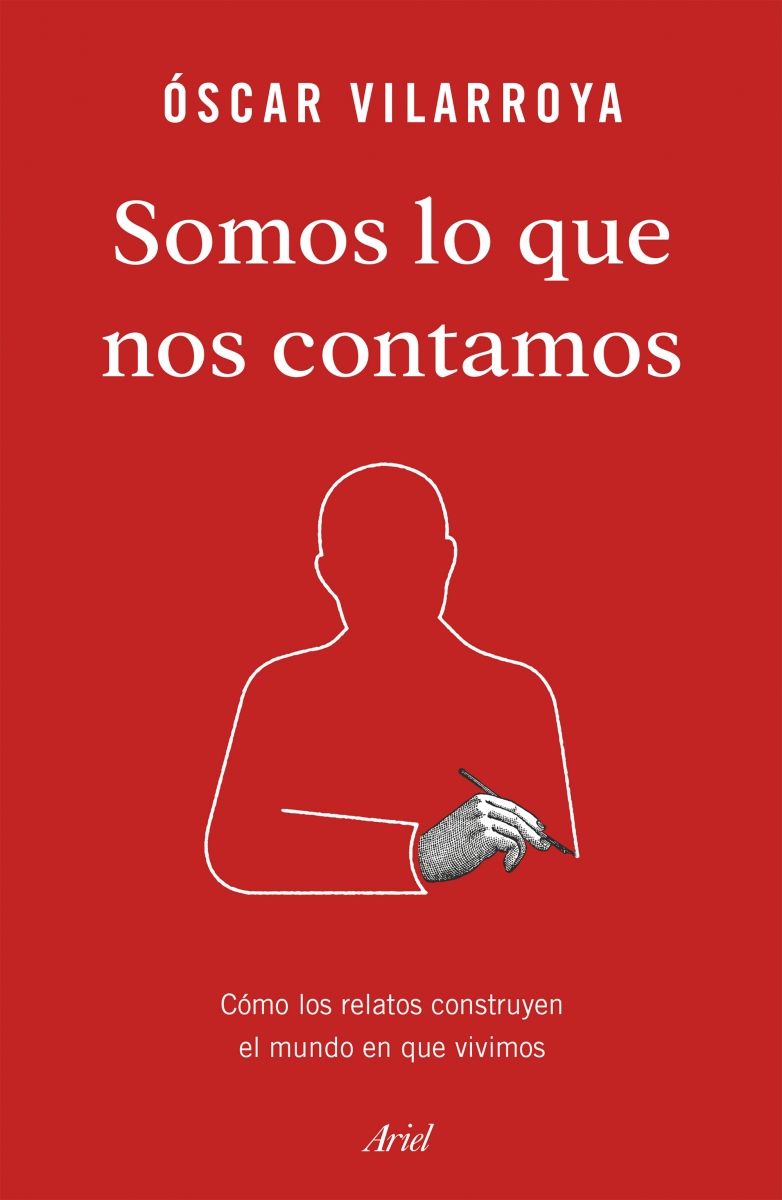
Somos lo que nos contamos
Somos lo que nos contamos adresses something that defines us as humans: our ability to narrate, that is, to tell and tell stories to ourselves. The starting point of Somos lo que nos contamos is the fact that telling stories is an integral part of our nature, so much so that, in some way, we are the stories we tell ourselves. However, the book also defends the idea that our narrative ability builds the reality in which we live, although that the aim of this activity is not to provide an accurate account of what is happening around us, but rather to give it meaning. Our stories can build a more or less suitable representations of the world, but they can also build a reality that we believe to be totally truthful, when it is nothing more than a fantasy that we conveniently believe. And this has many consequences, some harmless, like believing that our team is the best, and others extremely dangerous, like convincing ourselves that our problems are caused by a specific population or country.
Somos lo que nos contamos develops this idea, explaining the evolutionary origin of the narrative faculty and the adaptive benefit it could bring, as well as describing the basic psychological mechanisms of the narrative faculty, its biases, adjustments and imbalances, as well as its manifold uses. Each chapter presents results of scientific studies, as well as illustrates its arguments with singular clinical cases, or with recent public events, such as the appearance of narrative bubbles amplified by social networks. The text adopts a personal perspective, although based on my career as a neuroscientist, and with the help of studies in psychology, evolutionary biology, as well as other humanistic disciplines.
Somos lo que nos contamos. Cómo el relato construye el mundo en que vivimos
Oscar Vilarroya
Ariel, 2019

Paraula de robot. Intel·ligència artificial i comunicació
Premi europeu de divulgació científica estudi general
Belgian linguist and robotics expert Luc Steels worked with the robot-puppy AIBO to understand the origin and evolution of language. His work has allowed us to explore some of the questions we have always asked ourselves: How do we learn to speak? What is the meaning of a word? What is the relationship between language and our cognitive abilities? How important is communication in the meaning of words? Paraula de robot word travels through the time and space of scientific research, along a path that reveals what we know about the functioning of the human brain with respect to the acquisition of language.
Paraula de robot
Oscar Vilarroya
Bromera, 2003

The Dissolution of mind
This book presents an original thesis about the notion of sensory experience and of the mind’s architecture, which is grounded in current trends in cognitive science and philosophy of mind. Presented in the form of a dialogue, the book explores some of the psychological and philosophical consequences that the author derives from his proposal.
The dissolution of mind
Oscar Vilarroya
Rodopi/Brill, 2002

Social Brain Matters
Edited by Oscar Vilarroya and Francesc Forn i Argimon
This book examines philosophical and scientific implications of Neodarwinism relative to recent empirical data. It develops explanations of social behavior and cognition through analysis of mental capabilities and consideration of ethical issues. It includes debate within cognitive science among explanations of social and moral phenomena from philosophy, evolutionary and cognitive psychology, neurobiology, linguistics, and computer science.
Social Brain Matters
Oscar Vilarroya and Francesc Argimon (Eds.)
Rodopi/Brill, 2007